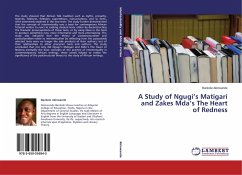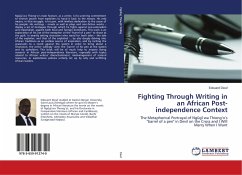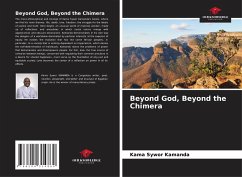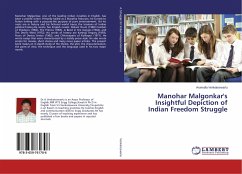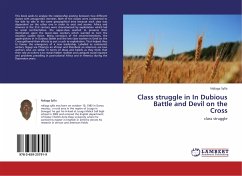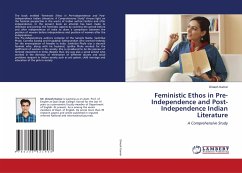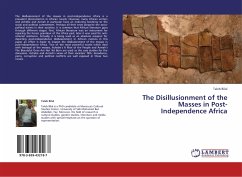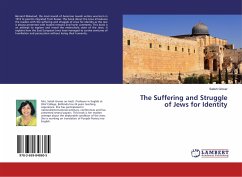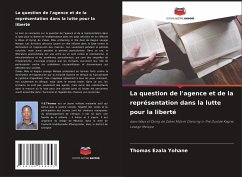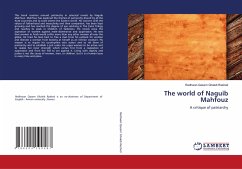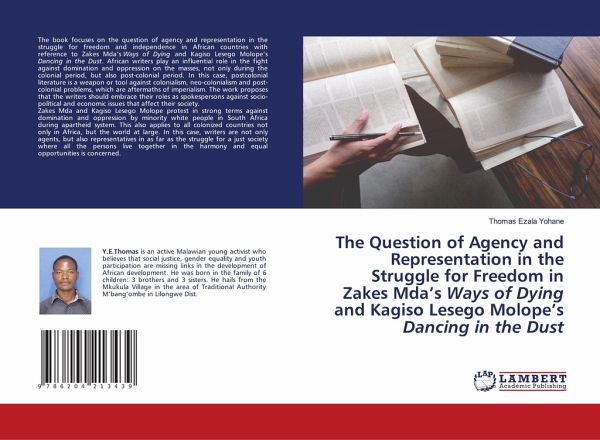
The Question of Agency and Representation in the Struggle for Freedom in Zakes Mda's Ways of Dying and Kagiso Lesego Molope's Dancing in the Dust
Versandkostenfrei!
Versandfertig in 6-10 Tagen
27,99 €
inkl. MwSt.

PAYBACK Punkte
14 °P sammeln!
The book focuses on the question of agency and representation in the struggle for freedom and independence in African countries with reference to Zakes Mda's Ways of Dying and Kagiso Lesego Molope's Dancing in the Dust. African writers play an influential role in the fight against domination and oppression on the masses, not only during the colonial period, but also post-colonial period. In this case, postcolonial literature is a weapon or tool against colonialism, neo-colonialism and post-colonial problems, which are aftermaths of imperialism. The work proposes that the writers should embrace...
The book focuses on the question of agency and representation in the struggle for freedom and independence in African countries with reference to Zakes Mda's Ways of Dying and Kagiso Lesego Molope's Dancing in the Dust. African writers play an influential role in the fight against domination and oppression on the masses, not only during the colonial period, but also post-colonial period. In this case, postcolonial literature is a weapon or tool against colonialism, neo-colonialism and post-colonial problems, which are aftermaths of imperialism. The work proposes that the writers should embrace their roles as spokespersons against socio-political and economic issues that affect their society.Zakes Mda and Kagiso Lesego Molope protest in strong terms against domination and oppression by minority white people in South Africa during apartheid system. This also applies to all colonized countries not only in Africa, but the world at large. In this case, writers are not only agents, butalso representatives in as far as the struggle for a just society where all the persons live together in the harmony and equal opportunities is concerned.



